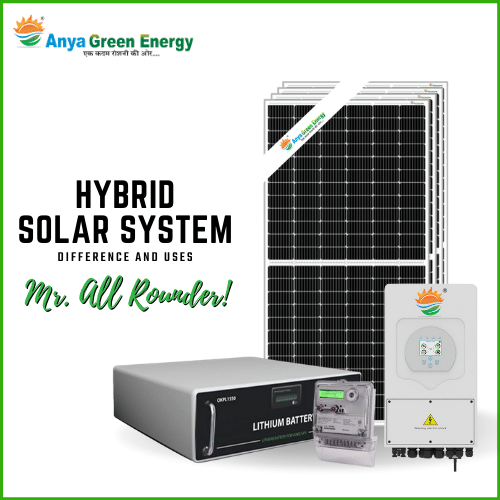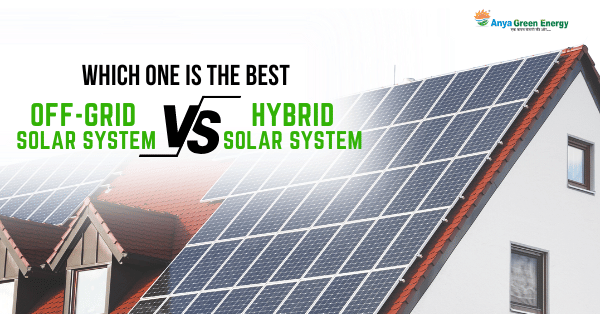HYBRID SOLAR SYSTEM FOR FMCG INDUSTRY
In an era where sustainability and environmental consciousness reign supreme, the FMCG (Fast-Moving Consumer Goods) industry faces increasing pressure to adopt eco-friendly practices. One solution that has gained significant traction is the integration of hybrid solar systems. These cutting-edge technologies combine the best of both solar and conventional energy sources, offering a sustainable power solution tailored to the unique demands of the FMCG sector.
GET HYBRID SOLAR SYSTEM FOR FMCG INDUSTRY

Why choose hybrid solar system for FMCG industry ?
The FMCG industry is characterized by its extensive energy requirements, demanding a reliable and consistent power supply. Hybrid solar system for FMCG industry offer a comprehensive solution to meet these demands. By seamlessly integrating solar panels with conventional energy sources, businesses can ensure uninterrupted power supply, regardless of weather conditions or time of day.
Importance of hybrid solar system for FMCG industry
- Environmental Stewardship:
One of the most compelling reasons for adopting hybrid solar system for FMCG industry lies in their positive environmental impact. By harnessing the power of the sun, businesses can significantly reduce their reliance on fossil fuels, thereby decreasing greenhouse gas emissions. This shift towards cleaner energy sources aligns perfectly with global efforts to combat climate change and reduce environmental footprints.
- Cost-Efficiency:
The FMCG industry is known for its tight profit margins and fierce competition. Hybrid solar systems present an opportunity for businesses to offset energy costs and achieve long-term financial sustainability. By generating their own electricity through solar panels, companies can reduce their reliance on the grid, resulting in substantial savings over time.
- Energy Independence:
In a rapidly changing energy landscape, achieving independence from volatile energy markets is crucial for the stability and growth of FMCG businesses. Hybrid solar systems provide a degree of energy autonomy, allowing companies to have greater control over their energy supply and insulating them from market fluctuations.
Benefits of hybrid solar system for FMCG industry
- Reliability:
Hybrid solar systems offer a seamless transition between solar and conventional energy sources, ensuring a constant and reliable power supply. This is particularly crucial for FMCG businesses, which rely heavily on continuous operations for production and distribution.
- Scalability:
The modular nature of hybrid solar systems allows for easy expansion to meet growing energy demands. This scalability is invaluable for FMCG companies, which may experience fluctuations in energy requirements due to seasonal variations or business expansion.
- Reputation and Branding:
Embracing sustainable practices has become a key factor in consumer purchasing decisions. By adopting hybrid solar systems, FMCG companies demonstrate a commitment to environmental responsibility, enhancing their brand image and appealing to a growing market of eco-conscious consumers.
- Regulatory Compliance:
Governments worldwide are implementing stricter regulations and incentives to encourage the adoption of renewable energy sources. By investing in hybrid solar systems, FMCG businesses can ensure compliance with current and future environmental mandates, avoiding potential penalties and enjoying the benefits of government incentives.
In conclusion, the integration of hybrid solar systems is a game-changer for the FMCG industry, offering a powerful tool to enhance sustainability, reduce costs, and secure a reliable energy supply. As businesses continue to recognize the importance of environmental stewardship and financial stability, the adoption of hybrid solar systems for the FMCG industry is poised to become a standard practice. By harnessing the power of the sun, FMCG companies can not only future-proof their operations but also contribute to a greener, more sustainable world. Embracing this innovative technology is not just a choice; it’s a strategic imperative for the FMCG industry in the 21st century.


